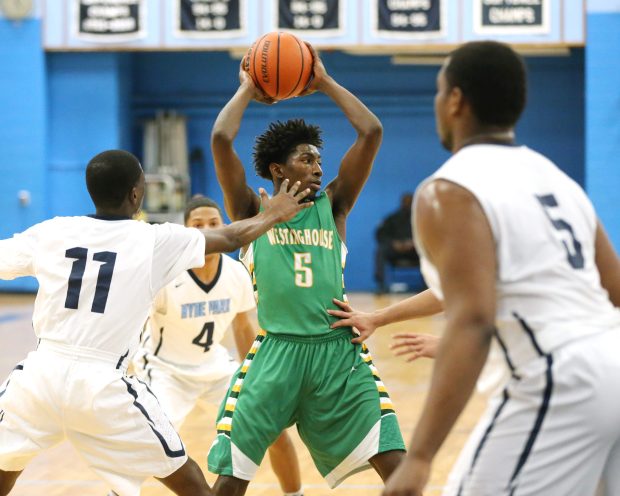The five tactical officers for months were on the radar of the Civilian Office of Police Accountability.
From mid-2023 through March 2024 — the month 26-year-old Dexter Reed was killed in a shootout during a traffic stop in the 3800 block of West Ferdinand — those five cops were named in at least four separate COPA investigations that stemmed from traffic stops initiated in the Chicago Police Department’s Harrison District (11th).
The fatal shooting of Reed, a former basketball player at Westinghouse College Prep high school who shot a police officer moments before he was killed, laid bare longstanding tensions between Chicago’s police and the investigators who probe officers’ use of deadly force.
The officers involved repeatedly violated rules involving motorist traffic stops, investigators found. And, after months of public discord, the leaders of the city’s police department and its oversight agency reached the same conclusion: The officers needed to be suspended.
Those findings came after the stop that wound up costing Reed his life, but they highlight the problems such a pattern can create when officers put themselves in harm’s way with improper stops. Chicago police still are working to prevent that kind of policework even as turmoil in the police disciplinary structure appears to be subsiding.
Prior stops
The 3900 block of West Van Buren has been a hotspot for drug and gang activity for years. On Friday, March 1, 2024, just after sunset, a man sat in his vehicle with his brother in the front passenger seat outside his apartment building near the end of the block.
The car was stationary, but its headlights were on, according to records made public by COPA last month. Moments later, the men were boxed in by two unmarked CPD squad cars.
The lead officer asked the driver for his license, but he didn’t have it. He was then asked for a Firearm Owner’s Identification Card and Concealed Carry License. He didn’t have either and denied any weapons were in the vehicle.
Both men were ordered out and patted down. The front and rear compartments of the vehicle were searched. Nothing was found.
The officers told the men they were detained because the vehicle’s lights were on while stationary — an unlawful interpretation of Chicago’s municipal code, COPA later found. No arrests were made and the officers did not provide any sort of documentation for the traffic stop. The officers then turned off their body-worn cameras and left.
“In the absence of legal authority to detain these two members of the public, the officers’ actions constitute an unlawful restraint,” COPA investigators later wrote.
The man in the driver’s seat alleged that the officers wouldn’t provide him their names and badge numbers. Soon after the stop concluded, the man requested that a CPD sergeant come to the scene so he could file a complaint.
Just minutes later, the tactical officers were about half-mile north in the 4000 block of West Wilcox, where they placed a man under arrest for allegedly possessing an illegal handgun. Cook County court records show that case is still pending.
The next week, on Wednesday, March 6, the officers were involved in another traffic stop, this one in the 3800 block of West Jackson.
Around 5 p.m., the team curbed the driver of a Maserati who, they said, was unbuckled, speeding and eating while driving. Another officer later told the driver he was stopped because the vehicle had tinted windows.
The driver gave his license to one of the officers and was soon ordered out of his car. He initially refused, though, and requested that a sergeant come to the scene. Another of the officers threatened to arrest the man for obstruction of justice. The driver then acquiesced, and the officers searched him and the car.
While standing outside the vehicle, the man requested the officers’ names and badge numbers. He was again threatened with arrest, COPA records show.
The search turned up nothing, and the officers disabled their body-worn cameras and left the area. A misconduct complaint was filed later that day.
Friction in disciplinary structure
Traveling in unmarked squad cars, often in plainclothes attire, tactical officers are frequently the first cops to respond to shootings or other high-priority calls for service.
In the Harrison District — the epicenter of Chicago’s narcotics trade and one of the most violent parts of the city — “tact teams” stay busy. Civilian complaints of misconduct are common, though most are not sustained by investigators.
CPD Superintendent Larry Snelling’s frustration with then-COPA Chief Administrator Andrea Kersten was apparent for much of 2024. Inside COPA, friction among managers and allegations of biased investigations prompted Kersten to resign earlier this year.
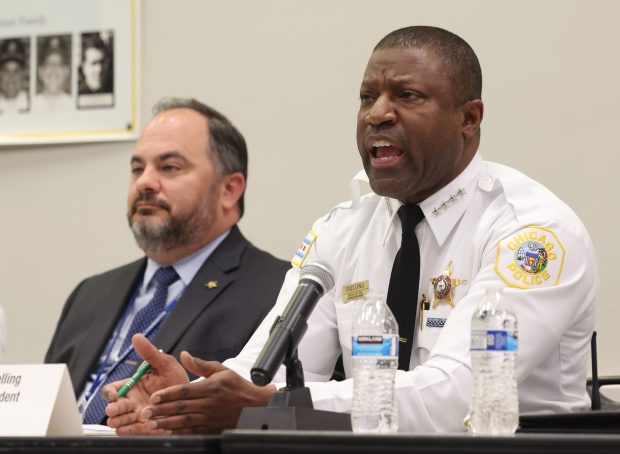
Despite the public tensions, CPD ultimately agreed with COPA’s assessment that the tactical officers should be suspended for repeatedly violating CPD rules related to traffic stops..
CPD said those five officers should be off the street, collectively, for 109 days for their behavior during four traffic stops on the West Side that occurred in the months before the Reed shooting.
One of those five quit CPD in November 2024. The officer who was shot may not be able to perform police duties in the future, a police source recently told the Tribune.
CPD is now working to develop and implement a new traffic stops policy, the first draft of which was released last month. Though nothing is set in stone, the draft of the new policy would allow officers to continue using pretextual traffic stops as a means to go after guns and drugs.
Meanwhile, Mayor Brandon Johnson nominated an interim leader of COPA as the Community Commission for Public Safety and Accountability continues the search for Kersten’s permanent replacement.
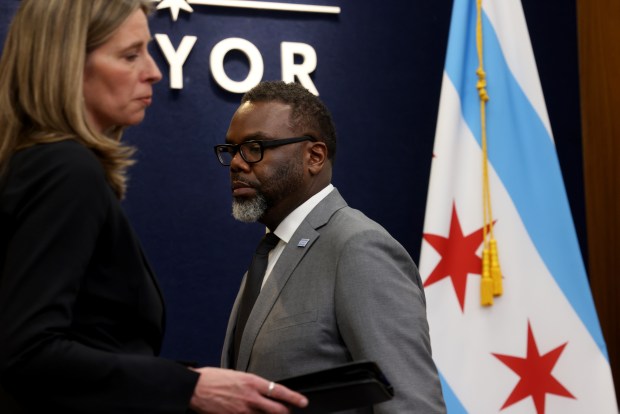
The officers still with CPD are on administrative duty, according to a department spokesperson.
Of CPD’s 22 patrol districts, the Harrison District — roughly bounded by Roosevelt Road, Division Street and Western and Cicero avenues — usually ranks near the top in narcotics arrests and shootings. Police activity is often highest in and around the blocks closest to the Eisenhower Expressway, along Pulaski Road, as well as the intersection of Chicago and Homan avenues.
“What I’ve seen from police officers in my district is they use traffic stops as a way of going around some of the limitations that they’re finding and trying to enforce drug laws,” Brian Ramson, one of the Harrison District Councilors, said last month.
Dexter Reed
Nine days before his death, Dexter Reed had court.
It was a status hearing for a gun charge that came the previous July after he was arrested with a revolver near the Windy City Smokeout festival outside the United Center. Another hearing was set for the following month.
Court filings show that the years leading up to Reed’s death were marked by physical, emotional and financial hardship. He survived a shooting in 2021, though he spent months in the hospital recovering.
“I’m physically disabled and mentally unstable with PTSD, short-term memory loss, slurred speech, drop foot in one of my legs, blindness in one eye, shoulder/arm hard to move, weakness and/or sensitivity,” Reed wrote in a 2023 court filing.
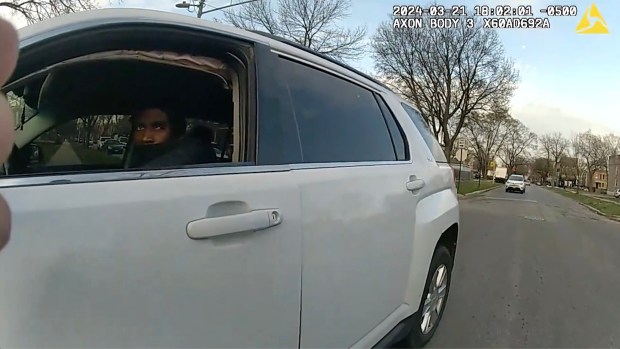
On March 21, 2024, Reed was driving in the 3800 block of West Ferdinand when his vehicle was boxed in by the team of tactical officers.
Police bodycam footage shows the officers exit an unmarked police vehicle, draw their weapons and repeatedly order Reed to roll down his SUV’s tinted windows. Reed initially complied and rolled down his window, but he appeared to disregard the officers’ commands to roll down the window on the passenger side.
Moments later, Reed shot the officer standing on the SUV’s passenger side. The other four officers then opened fire, shooting dozens of rounds at Reed, who exited the vehicle before falling to the pavement. One officer fired three more shots at Reed as he was lying motionless in the street.
That officer shot at least 50 times during the 41 seconds of gunfire. He was one of three officers who reloaded their weapons, according to COPA.
An autopsy later found that Reed was shot 13 times.
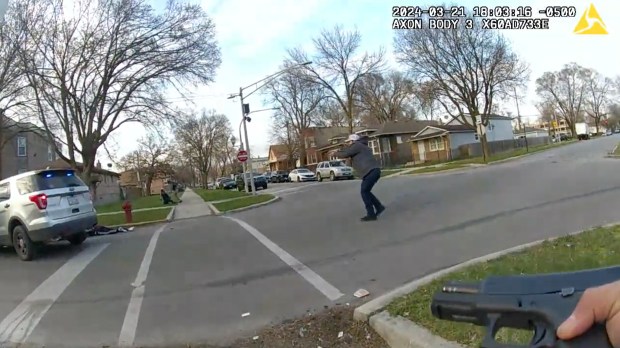
***
Just hours before the fatal gunfire erupted, a Cook County judge entered an order that would allow CPD officers accused of serious misconduct to forgo the Chicago Police Board.
The board convened for its monthly meeting that evening, about 90 minutes after the Reed shooting. Both Snellling and Kersten delivered their agency’s monthly report to the dozen or so regular meeting attendees.
“I want to also express condolences to members of the Chicago Police Department in light of tonight’s events,” Kersten told Snelling shortly after Reed was killed and the officer was wounded. “I think it just really crystallizes the importance of having these conversations, collaboratively and productively, about how COPA does its job, how the Chicago Police Department lives up to its policies and training, and how we move forward as a city.”
It was a striking change in tone from the police board’s meeting in February. It was then that Snelling chided COPA investigators for leaning on “personal opinions and speculation.”
Less than two weeks after the Reed shooting, on April 1, Kersten wrote Snelling to note that the officers involved were under investigation for their actions during another traffic stop in the Harrison District. Kersten urged that the officers be stripped of their police powers and placed on desk duty.
The body-worn video footage of the Reed shooting was made public on April 9, 2024. Two days later, Kersten was a guest on ESPN personality Stephen A. Smith’s YouTube show. Kersten did not discuss the facts of the shooting, but her appearance irked CPD leaders and the conservative wing of the City Council.
Ald. Nick Sposato, 38th, soon filed a complaint against Kersten with the city’s Office of Inspector General.
Sposato accused Kersten of speaking “in an accusatory and inappropriate prejudicial tone about facts that have yet to be investigated,” but his letter did not cite examples from her public remarks.
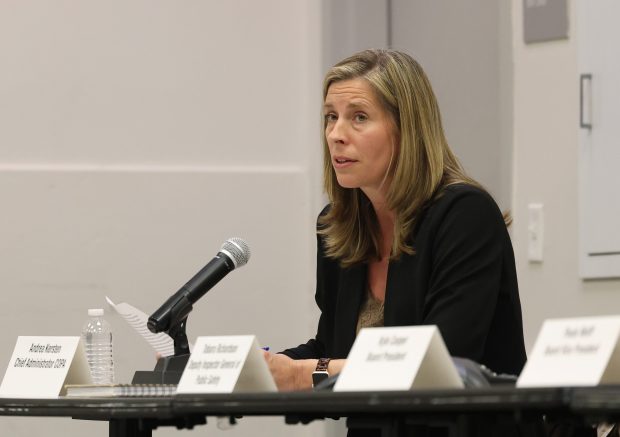
A few weeks later, during the April 2024 police board meeting, Kersten addressed the outcry.
“Last week’s release of materials and my public comments pertaining to the fatal police shooting of Dexter Reed, in which an officer was also shot and wounded, have led to sharp criticisms,” Kersten said. “This criticism demonstrates a fundamental lack of understanding of COPA’s role and process and smacks of hypocrisy.”
“This is misleading at best,” Snelling said in response.
“There is nothing wrong with transparency, transparency is of the utmost importance,” Snelling added. “But when information is leaked prior to releasing the video, when statements are made without all of the information, an investigation has to begin. And if we’re starting by putting it out in the public in a manner in which we framed it, and we expect the public to see it the way we want them to see it, it’s problematic. This is why I’ve made no statements about this shooting.”
Reed’s family held a press conference the following week outside the Harrison District station to announce its federal lawsuit against the city. The initial complaint did not mention that Reed shot a police officer before he was killed.
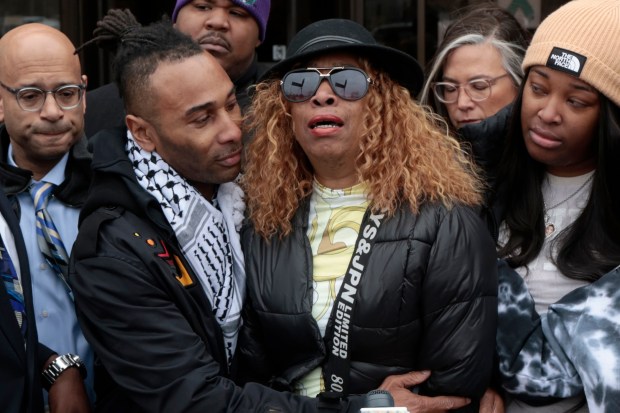
Nicole Banks, Reed’s mother, told reporters that she watched the police bodycam footage of the shooting “over and over and over.”
“They executed him,” Banks said through tears. “He fell down and they put the handcuffs on him. That was not right. In the name of Jesus, I ask that he rest in peace.”
Civil rights challenges
Police shootings, justified or not, usually lead to some kind of civil litigation.
Surviving family members often bring lawsuits that allege civil rights abuses, and CPD officers can ask a judge to undo discipline leveled against them.
In August 2024, the Fraternal Order of Police filed a federal lawsuit on behalf of eight CPD officers recommended for discipline by COPA. The union alleged that the agency’s investigators and higher-ups “have engaged in a pattern and practice to treat Police Officers unequally and unfairly. Specifically, Defendant COPA conducts unconstitutional, biased and untimely investigations.”
Among the defendants in the FOP’s federal suit was Matthew Haynam, COPA’s former deputy chief administrator who was fired from the agency, also in August 2024. The next month, Haynam filed a whistleblower lawsuit against COPA in Cook County, alleging that his firing was a result of him speaking out against what he called COPA’s anti-police bias.
Over that winter, the Community Commission for Public Safety and Accountability was fielding and investigating complaints about COPA’s workplace culture and accountability and the quality of its investigations under Kersten’s leadership.
“If the police accountability system is or is reasonably perceived to be ineffective or unfair, it will erode public confidence in policing and police oversight,” CCPSA President Anthony Driver and Vice President Remel Terry wrote to Kersten on Jan. 28, 2025.
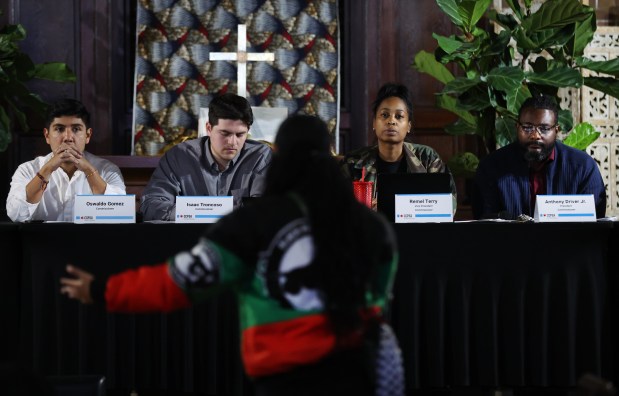
CCPSA told Kersten a no-confidence vote was forthcoming, and she announced her resignation two weeks later amid a purge of leadership in several other city departments. It was a decision, she said, that was in the works for some time.
“What I know to be certain about this issue is that society has forced it into this binary where you’re either for or against somehow, as opposed to understanding that, truly, to do this work, to do this kind of accountability reform work, it’s not one or the other. It’s not ‘either-or.’ It’s not pro-police or against,” Kersten told the Tribune shortly before she left her post.
That same month, attorneys for the city and the CPD reached an agreement with Reed’s family to settle their federal lawsuit for $1.25 million.
In early March 2025, Snelling endorsed the agency’s recommendations that the officers be suspended.
Haynam then voluntarily dismissed his lawsuit against COPA, court records show. Last week, however, Haynam filed a new lawsuit in federal court alleging that his firing was a violation of his First Amendment rights.
In April, the City Council voted down the proposed settlement with Reed’s family.
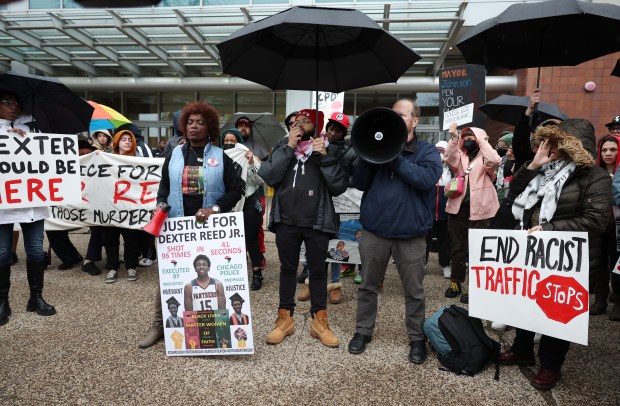
The FOP’s lawsuit against COPA alleging unconstitutional investigations reached its conclusion, too.
On April 24, 2025, a federal judge granted the city’s motion to dismiss, agreeing that the constitution “does not protect a police officer’s interest in fair and impartial employment investigations.”
“Because COPA’s investigation constitutes process rather than a protected property interest, the Court dismisses Plaintiffs’ due process claim premised on a property interest in a fair investigation,” wrote U.S. District Judge Jorge Alonso.


